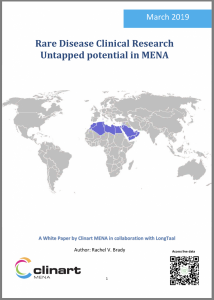Egypt Leads World in Huntington’s Prevalence, But Lacks Clinical Trials on the Disease, Report Says

The Great Pyramids of Giza, Egypt's leading tourist attraction. (Photo by Larry Luxner)
Egypt, the most populous country in the Arab world, has the highest prevalence of Huntington’s disease, yet this nation of 100 million is overlooked when it comes to research on the fatal genetic disorder.
Huntington’s disease occurs in 2.7 per 100,000 inhabitants worldwide, and 10 per 100,000 in Europe, according to a new report, “Rare Disease Clinical Research: Untapped Potential in MENA.” But 21 of every 100,000 Egyptians has the disease, which translates into roughly 21,000 patients.
That rate is double the prevalence of Huntington’s in Europe, and 11 times higher than the U.S. average. Even so, not a single one of the 130 studies conducted by 67 sponsors in 30 countries over the past decade has included patients in Egypt.
“It is understandable for sponsors to focus their clinical trial efforts in Western Europe, both due to the high prevalence rates and the extensive past experience working in these countries,” wrote Rachel V. Brady, author of the report, which was published by Dubai-based Clinart MENA. “However, it is surprising to find that at least four new trials are initiated each year, and yet Egypt has not once been included in a study in the last 10 years.”
Other countries where Huntington’s is particularly prevalent include Ireland (10.6 per 100,000); Norway (6.7); Italy (6.35); Australia (6.3); Denmark (5.8); Great Britain (5.4); Slovenia (5.2); and Sweden (4.7).
In the 10 years ending February 2019, the United States accounted for 66 of the 130 Huntington’s trials conducted worldwide, followed by France (30); Canada (27); Britain (24); and Germany (22). Not a single country in the Middle East or North Africa — a region collectively known as MENA — made this list.
“This presents a tremendous missed opportunity, both for the sake of clinical research, but also for the thousands of patients (and families) with no access to potential relief or cure for their declining quality of life,” Brady wrote.
Disease more common among Arabs
Cultural factors may largely explain why Huntington’s disease is particularly prevalent in Egypt.
Arabs often have large families, with people still producing children relatively late in life. In addition, high rates of consanguinity (marriage between close relatives) — sometimes approaching 60% of total marriages — are major contributing factors for high levels of congenital and genetic diseases in the Middle East.
As a result, more than 900 rare diseases are known to affect the region, including Gaucher disease, Fabry disease, thalassemia, and sickle cell disease.
According to the report, congenital malformations are the second leading cause of infant mortality in Bahrain, Kuwait, Oman, and Qatar, while in Saudi Arabia, they account for around 30% of perinatal deaths.
Maroteaux-Lamy syndrome, also known as mucopolysaccharidosis type 6, is a genetic condition that causes organ damage. Without treatment, children with this disease rarely survive into adolescence or adulthood. Saudi Arabia has the highest prevalence of this illness, at 7.85 per 100,000, yet it hasn’t been included in any of the 11 clinical trials conducted for this syndrome in the last 10 years.
Likewise, tiny Qatar has the world’s highest incidence of hemophilia A (7.9 cases per 100,000), yet it also hasn’t been included in any clinical trial of the disease.
Huntington’s disease is caused by a mutation in the HTT gene. It’s inherited in an autosomal dominant manner, meaning that a person needs only one copy of the defective gene to develop the disorder. It typically affects people in their 30s and 40s, and has been described as having Alzheimer’s, Parkinson’s, and ALS (amyotrophic lateral sclerosis) — all at the same time.
‘Untapped potential’ for research
Patients often have difficulties walking, speaking, swallowing, and controlling their movements. The disease is progressive, meaning it gets worse over time.
In 2006, researchers classified 774 Mendelian traits — or those that follow the laws of inheritance formulated by Gregor Mendel in the 1860s — that are common to Arabs. This has led to governments throughout the Middle East to focus on prevention, awareness, and early recognition through genetic screening, most notably in Bahrain, Egypt, Jordan, Lebanon, Oman, Qatar, Saudi Arabia, Tunisia, and the United Arab Emirates.
“Some of the disorders recorded are Arab-specific syndromes or are localized within specific regions or communities. However, most are of global significance,” Brady wrote. “Consequently, the historical under-representation in clinical trials has positioned this region to provide a significant untapped and often treatment-naïve patient population.”
In fact, of the world’s 20 leading industry sponsors of clinical trials in rare diseases — a list led by Novartis, GlaxoSmithKline, Pfizer, Celgene, and Sanofi — not one of them conducted more than 10% of their trials in the MENA region. Only one company, Germany’s Centogene, appears to be focusing on the Middle East, with 10 of its 15 studies underway at 25 sites in the Arab world.
Part of the reason for this is the time-consuming bureaucracy in launching a clinical trial — especially in less developed countries. To mitigate these bottlenecks, Egypt established a Network of Research Ethics Committees in 2008 “to bring harmonization and simplify procedures and standards among the country’s 56 regulatory and ethics committees and institutional review boards,” the Clinart report stated.
Other countries such as Jordan and Saudi Arabia have established their own government agencies, similar to the U.S. Food and Drug Administration. In the United Arab Emirates, new guidelines allow submissions to the Ministry of Health and Ethics Committee to be done in parallel.
The International Huntington’s Association, based in Norway, is represented in Egypt by Hany Farid Haleem as well as Bahaa Demian Grace, MD, of the Kasr Alaini College of Medicine in Cairo.








